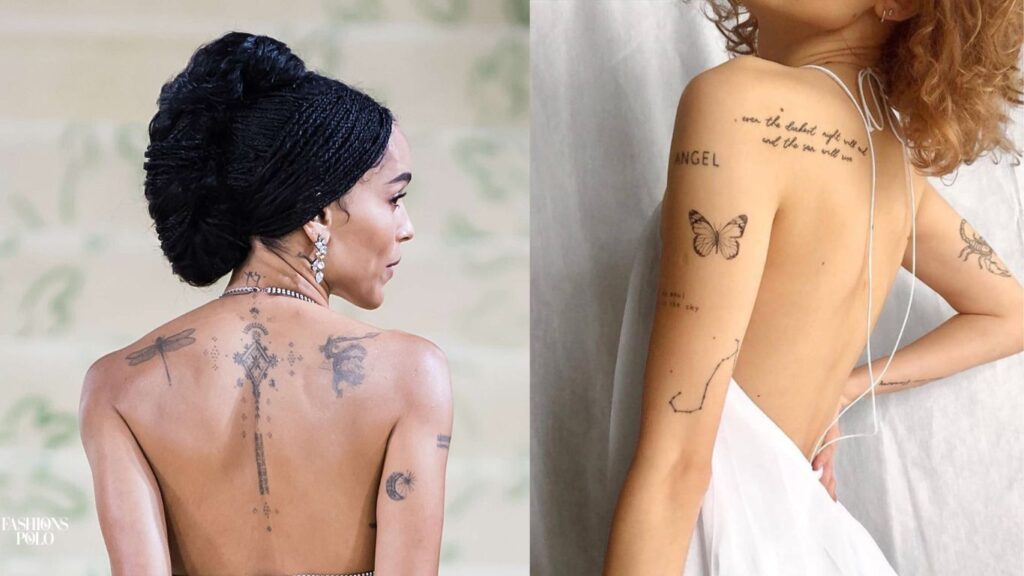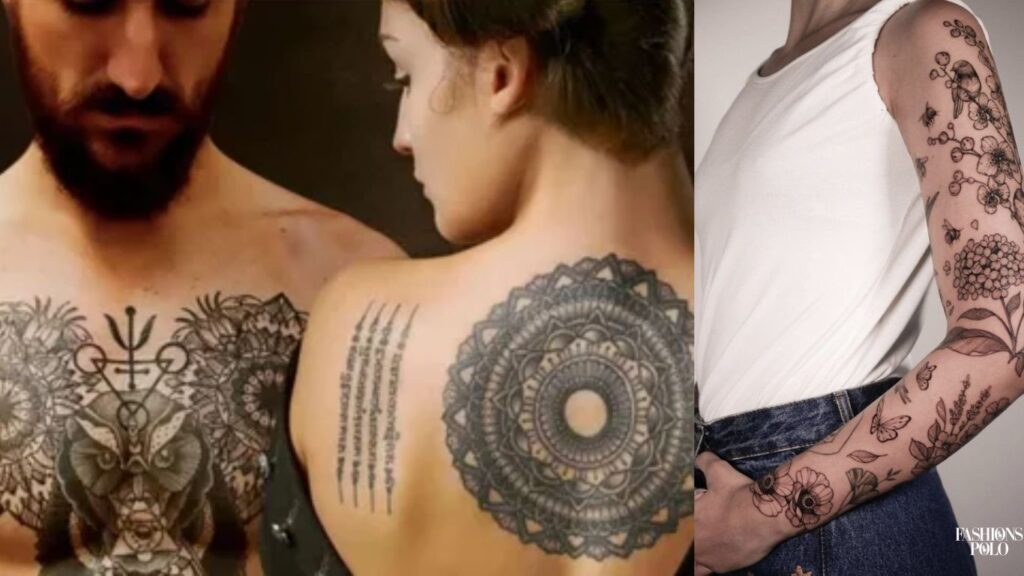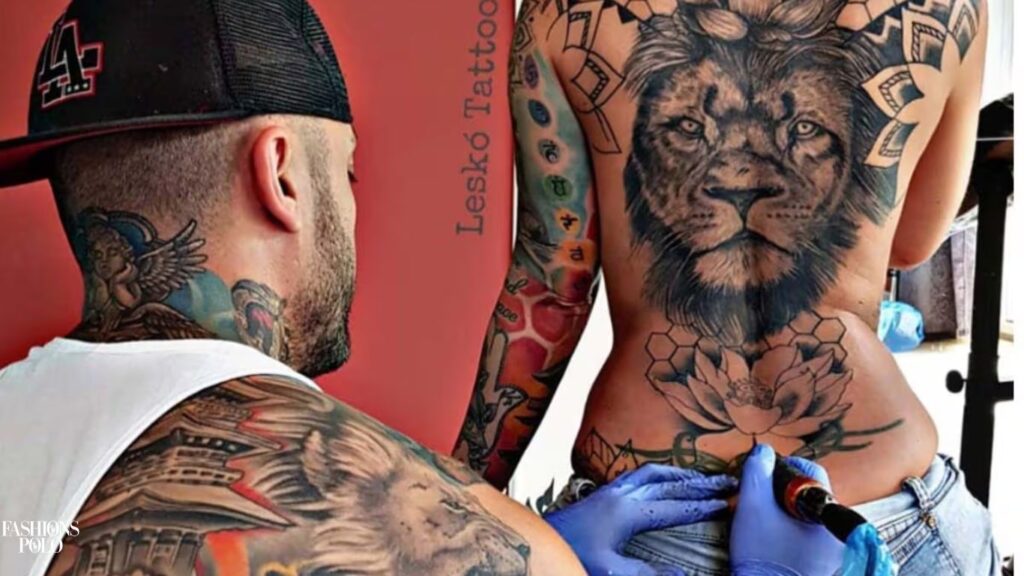Tattoos are a popular form of self-expression. Many people wonder about the cost of getting inked. The price of a tattoo can vary widely. Several factors influence the final cost. Let’s explore these factors in detail.
Tattoo Size and Complexity
Size matters in tattoo pricing. Larger tattoos cost more. Complex designs also increase the price. Time is a crucial factor. Most artists charge by the hour. A small, simple tattoo might take an hour or less. Large, intricate pieces can require multiple sessions.
Here’s a rough guide to tattoo sizes and estimated times:
| Size | Approximate Dimensions | Estimated Time |
| Tiny | 1-2 inches | 15-30 minutes |
| Small | 2-4 inches | 1-2 hours |
| Medium | 4-6 inches | 2-5 hours |
| Large | 6-10 inches | 5-8 hours |
| Extra Large | 10+ inches | 8+ hours |
Detail affects complexity. Fine lines and intricate shading take more time. Realistic portraits are often more complex than simple symbols. Color can add to complexity. More colors mean more time and skill required.
Custom Work vs. Flash Designs
Flash designs are pre-made tattoos. They’re often displayed in studios. Flash tattoos are usually cheaper. The design is already complete. The artist is familiar with it. Custom designs cost more. They require consultation time. The artist must create a unique design. This process takes extra time and skill.
Custom work allows for personalization. You can get exactly what you want. Flash designs offer limited customization. They’re quicker and cheaper. But they’re not unique. Many people may have the same tattoo.
Read This Blog : Where is Taylor Mayne Pearl Brooks? All About Garth Brooks’s Eldest Child
Tattoo Placement

- Ribs
- Feet
- Hands
- Head
- Inner arms
Easy-to-tattoo areas might be cheaper. These include:
- Upper arms
- Legs
- Back
Pain levels also vary by location. Sensitive areas might require breaks. This can extend the tattooing time. Longer sessions mean higher costs.
Colour vs. Black and Grey
Color tattoos often cost more than black and grey. Colored inks are more expensive. They require more skill to use effectively. Blending colors takes time and expertise. Black and grey tattoos are simpler. They use fewer ink types.
Some colors are harder to work with. Bright colors like white or yellow might need touch-ups. This adds to the overall cost. Color tattoos may fade faster. They might need more frequent touch-ups.
Tattoo Artist’s Expertise
Experienced artists charge more. Their skill level is higher. They produce better quality work. Reputation plays a role in pricing. Famous artists can charge premium rates. Newer artists might charge less. They’re building their portfolio.

Specialized skills affect pricing. Some artists excel in certain styles. Realism, watercolor, or traditional Japanese styles require specific skills. These specialized tattoos often cost more.
Tattoo Shop Location and Overheads
Location affects tattoo prices. Shops in expensive areas charge more. They have higher rent and utility costs. City center shops often have higher prices. Suburban or rural shops might be cheaper.
High-end shops have more overheads. They might offer luxury experiences. This can include:
- Private tattooing rooms
- High-tech equipment
- Premium aftercare products
These extras add to the overall cost. Basic shops have lower overheads. They can offer lower prices.
Read Also This : Abigail S. Koppel: Background, Family, Education, and Professional Life
Tattoo Aftercare Products
Aftercare is crucial for tattoo healing. Many shops include aftercare products in the price. Others sell them separately. Quality aftercare can prevent infections. It helps maintain the tattoo’s appearance.
Common aftercare products include:
- Antibacterial soap
- Moisturizing lotion
- Healing ointment
These products add to the overall cost. But they’re essential for proper healing. Some artists offer free touch-ups. This is usually if you follow their aftercare instructions.
Conclusion
Tattoo pricing is complex. Many factors influence the final cost. Size, complexity, and placement are key factors. The artist’s skill and shop location also matter. Custom designs cost more than flash tattoos. Color tattoos are pricier than black and grey.
Remember, quality matters in tattooing. Cheaper isn’t always better. A good tattoo is an investment. It’s permanent art on your body. Consider all factors before choosing an artist. Don’t compromise on safety or quality to save money.
Always discuss pricing upfront. Get a clear estimate before starting. Factor in all costs, including aftercare. A great tattoo is worth the investment. It will be with you for life.
Frequently Asked Question
How much does a small tattoo cost?
Small tattoos typically cost between $50 and $250. Exact pricing depends on design complexity and artist experience.
Do tattoo artists charge by the hour or by the piece?
Many artists charge by the hour for larger pieces. Some offer flat rates for small, simple designs.
How much should I tip my tattoo artist?
A standard tip is 15-20% of the total cost. For excellent service, some clients tip up to 25%.
Are touch-ups free?
Some artists offer free touch-ups within a certain timeframe. This often depends on following proper aftercare instructions.
How much does a full sleeve tattoo cost?
Full sleeve tattoos can cost between $2000 and $5000 or more. They require multiple sessions and extensive work.

Brook with 5 years in celebrity styling. Transforms A-list looks into wearable trends.
Expert in red carpet glamour and everyday chic for the stars.





